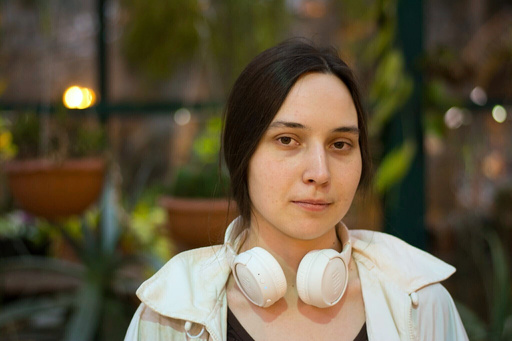BOSTON — A Harvard University researcher originally from Russia has been implicated in a smuggling case involving frog embryos within the United States. Following a judge’s decision to release her from federal custody, she appeared elated, embracing supporters and sharing moments of laughter outside the courthouse.
“I just want to thank everybody,” Kseniia Petrova expressed as she stood outside the federal building in Boston shortly after gaining her freedom. Sporting a T-shirt emblazoned with “Hakuna Matata” — a Swahili phrase immortalized by The Lion King, meaning “no worries” — Petrova communicated her relief.
“A lot of people started contacting me and sending me letters, and it was a huge support without which I wouldn’t be able to survive,” Petrova shared. She conveyed deep gratitude, emphasizing that she did not feel isolated while in custody, thanks to the continuous outpour of support.
Clad in an orange jumpsuit, Petrova, aged 30, had been held in federal detention since February. A mutual agreement between her legal representatives and the prosecution facilitated her release, albeit with travel restrictions, and while the authorities withheld her passport. Petrova is required to appear in court again the following week for a probable cause hearing related to the smuggling allegation.
As Magistrate Judge Judith Dein authorized the release conditions, she remarked, “I hear it’s sunny. Goodbye,” signaling a sense of closure. Greg Romanovsky, Petrova’s attorney, remarked that Petrova is yet to decide whether to remain in the U.S. or consider opportunities abroad.
“She has offers from different countries around the world, countries that are eager to support the important research that she’s doing. She’s weighing her options at the moment, and she’s very grateful to be out,” Romanovsky explained.
Petrova’s troubles began upon returning from a vacation in France; she stopped at a specialized lab there, collecting frog embryo samples for her scientific work. While undergoing a U.S. Customs examination at Boston Logan International Airport, her possession of these samples led to significant scrutiny.
Upon questioning, officials informed her that her visa was being revoked. After temporary detainment in Vermont where she sought release through legal channels, she was moved to an Immigration and Customs Enforcement facility in Louisiana.
The Department of Homeland Security released a statement claiming Petrova was detained after allegedly misleading federal officers about the contents she was bringing into the U.S. They alleged that text messages on her phone suggested she had intended to smuggle the materials without declaration.
In an interview in April, Petrova asserted that she was unaware of any declaration requirements and had no intention of unlawfully bringing items into the country. By May, charges of smuggling were filed in Massachusetts even as a federal judge in Vermont prepared to hear her petition.
That judge later ruled against the immigration officers’ actions, finding Petrova posed no danger and that the embryos in question were nonliving and posed no threat. Released from ICE’s jurisdiction, she remained in U.S. Marshals Service custody for the smuggling charge until her release on Thursday.
Supporters including colleagues and academics have testified about the significance of Petrova’s research, highlighting its potential to contribute significantly to cancer treatment advancements.



